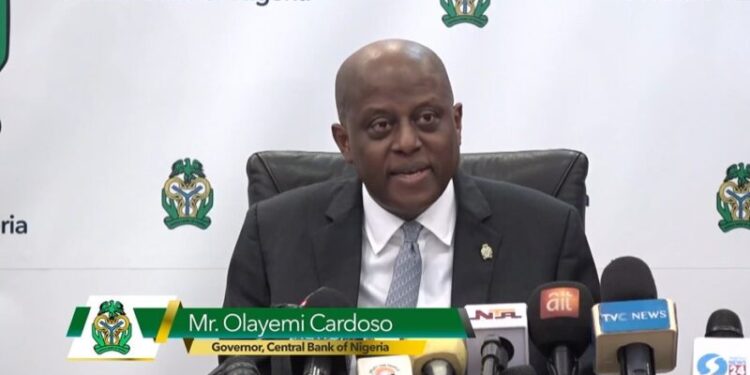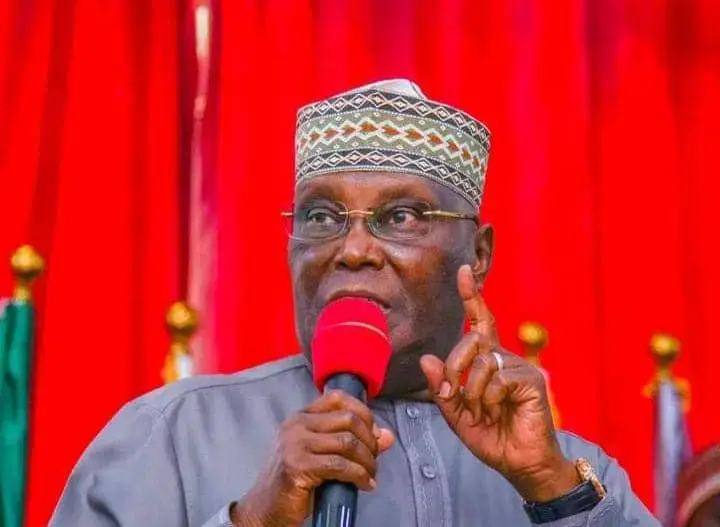The Central Bank of Nigeria has said that without its policy interventions, inflation could have risen to 42.81 per cent in December 2024.
The CBN Governor, Yemi Cardoso, made this known at the 2025 Monetary Policy Forum of the apex bank on Thursday in Abuja.
The forum attracted ministers, heads of departments and agencies involved in economic matters, as well as private sector players.
Cardoso also projected that diaspora remittances would increase to N31.787 trillion when the fourth quarter 2024 figures are released.
He said that the CBN would continue to employ orthodox monetary policy measures to tackle inflation in 2025.
“Counterfactual estimates suggest that without these decisive policy interventions, inflation could have reached 42.81 percent by Dec., 2024.
“Throughout 2024, the CBN implemented several bold policy measures across six MPC meetings
“These include raising the Monetary Policy Rate (MPR) by a cumulative 875 basis points to 27.50 per cent.
“They also include increasing the Cash Reserve Ratio (CRR) of Other Depository Corporations (ODCs) by 1750 basis points to 50 per cent, and adjusting the asymmetric corridor around the MPR,” he said.
He said that the CBN also undertook critical reforms to strengthen the financial system and ensure macroeconomic stability through a unified exchange rate window to enhance efficiency in the FX market.
According to Cardoso, this reform yielded tangible results, with remittances through International Money Transfer Operators (IMTOs) rising 79.4 per cent in the first three quarters of 2024 to 4.18 billion dollars.
He compared the figure to 2.33 billion dollars generated in the same period of 2023.
He said that the CBN also cleared a backlog of foreign exchange commitments totaling seven billion dollars, restoring market confidence and improving FX liquidity.
“We lifted restrictions on 41 items previously banned from access to the official FX market, a measure introduced in 2015.
“We also introduced new minimum capital requirements for banks, effective by March 2026.
“This is to strengthen the resilience and global competitiveness of Nigeria’s banking sector, positioning it to support the ambition of a one trillion-dollar economy,” Cardoso said.
He listed other policy interventions to include the launch of the WIFI initiative under the National Financial Inclusion Strategy.
He said that the initiative was designed to bridge the gender gap in financial access, empowering women through financial services, education, and digital tools.
“There is also the recently launched Nigeria Foreign Exchange Code, marking a decisive step forward for integrity, fairness, transparency and efficiency in our FX market.
“Built on six core principles, the FX code represents a binding commitment from the financial community to rebuild trust and inspire confidence.
“These reforms reflect our commitment to creating an enabling environment for inclusive economic development,” he said.
He, however, said that achieving macroeconomic stability required sustained vigilance and a proactive monetary policy stance..
To tackle inflation in 20205, Cardoso said that ‘managing disinflation amidst persistent shocks required robust policies and also coordination between fiscal and monetary authorities.
He said that such coordination would help to anchor expectations and maintain investor confidence.
“Our focus must remain on price stability, the planned transition to an inflation-targeting framework, and strategies to restore purchasing power and ease economic hardship.
“As we move forward into 2025, I am optimistic that we have turned a corner and that disinflation is within reach.
“However, we must remain committed to bold, coordinated policy measures to consolidate our progress,” he said.
Earlier, Mohammed Abdullahi, Deputy Governor Economic Policy of the CBN, said that the liberalisation of the foreign exchange market was a pivotal step towards unifying a highly fragmented system.
Abdullahi said that the step also helped in reducing substantial premiums driven by speculative activities and market inefficiencies.
“Prior to the adoption of a flexible exchange rate regime, the average exchange rate premium stood at an alarming 62.33 per cent between January and May 2023.
“Wth the introduction of the flexible exchange rate regime, this premium was drastically reduced to an all-time low of 0.10 per cent by June 2023, signalling significant progress towards market convergence,” he said. (NAN)











